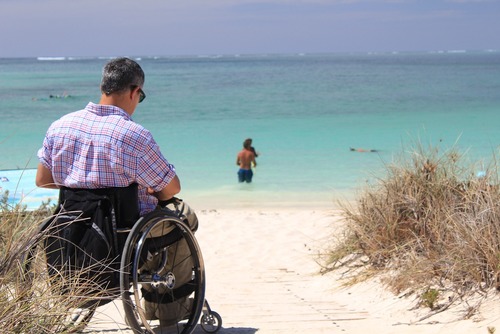But having a heart condition needn't mean you should avoid holidaying altogether. By following guidance and planning correctly, a trip should be both relaxing and beneficial for the heart.
If you or someone you are travelling with has a heart condition, here are some tips and things you should to consider:
1. Choose Your Destination Carefully
The first thing to consider is where you are travelling. Extreme climates are known to exacerbate problems with the heart.
It is therefore good practice to choose destinations that will not put your heart under any strain (so no jaunts to the North Pole or jungle treks). It is particularly important to avoid high altitudes if you have just had surgery or a recent complication.
You should also remember to stay well hydrated if choosing a sunnier retreat. As ever, if in doubt, consult your GP as some surgeons suggest to avoid travel altogether after recent surgery, and different heart conditions differ in severity.
It is recommend that passengers notify their airline they are travelling with a stable heart condition. It is worth notifying your hotel as well.
2. Get Prepared in Advance
Preparing all aspects of your travel - from transport through the hotel's proximity to local amenities and things to pack — is very important.
First ensure that you are capable of transferring and carrying your luggage, or request help if necessary. Organise a route in advance to avoid rushing.
You might also want to consider organised tours where you will get an experienced guide.
3. Airports
If you have a pacemaker or defibrillator, it is important to notify airport staff at security — with a doctor's letter or documentation as proof — to avoid any hiccups.
Some airports provide mobility help which you can request in advance, allowing transfer to the terminal without leaving you out of breath. Pre-booking will alleviate many potentially harmful stresses.
4. Flying

For the flight, travellers can invest in compression stockings and take aspirin to avoid the effects of cabin pressure. Travellers should also lightly exercise and stretch during long-haul flights.
Once at your destination, it is important to enjoy your holiday and relax, but also to stay alert and remember your routine; if there are certain activities or diets you must follow, stick to them.
5. Get Insurance
It is recommended that you take out travel insurance with heart condition coverage. If you already have travel insurance, make sure that your heart condition is covered.
If you are a European citizen, The EHIC will cover certain treatments in Europe, but it does not replace your actual insurance. If you are making a new health declaration for your insurance plan, it is often useful to consult your GP so that you have answered the detailed medical questions thoroughly.
Aside from coverage, travel insurance offers peace of mind, allowing you to travel heart healthy.
6. Pack Sensibly
Travellers should prepare both a doctor's letter with a list of prescriptions as well as an adequate amount of medication for the duration of stay. Always take a few extra day's worth just in case of delays, loss or another mishap. As long as the airline accepts medications in hand luggage, you should pack some of your prescriptions there.
7. Research Medical Facilites Before Departing
More importantly, travellers must research the medical facilities at their location.








